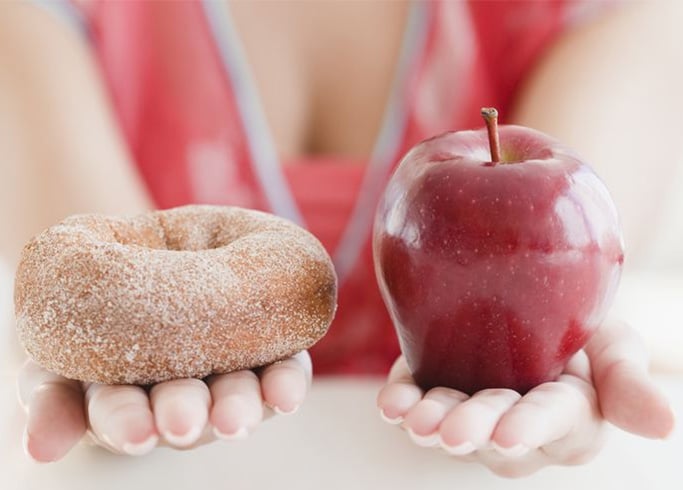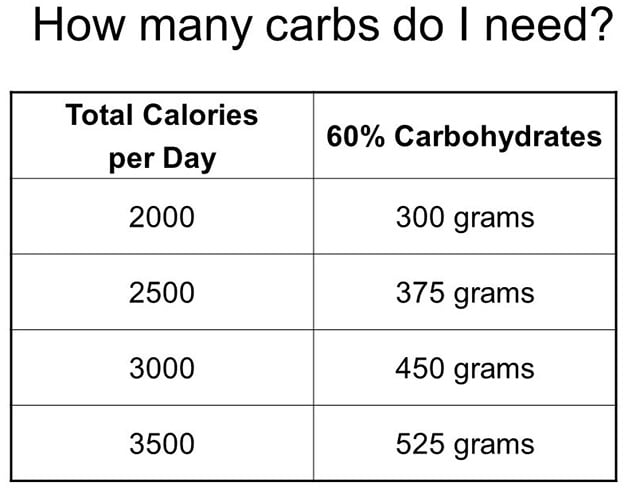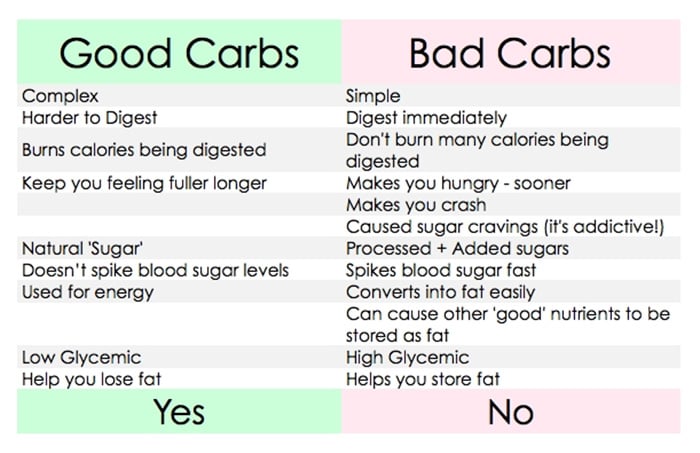
It is essential to choose a diet plan that offers the right amount of nutrients to your body and also refrain from gaining excessive weight. One such type of diet plan is the low-carb diet. This type of diet can limit the intake of carbohydrates such as sugar and starches such as breads and pasta. It replaces them with protein and fat.
Studies have revealed that understanding How Many Carbs You Should Eat a Day can help lower your appetite level, attain fewer calories and lose weight effortlessly. This can only be possible if you manage to keep your carbs level down.
Benefits of low carb diet:
A low carbs diet comes with a lot of benefits, including weight loss. Here are the benefits:
- It can help to reduce your appetite and cause weight loss without the requirement of calorie control. This means that you can have a full meal, and yet lose weight easily
- A low carbs diet can in fact lower your blood sugar, blood pressure and triglycerides.
- It can also improve the patterns of LDL cholesterol levels and raise HDL levels.
How to find out if your body needs carbohydrates?
There is no definite indication of what constitutes a low carb diet because it can differ from person-to-person on various levels. This difference can depend on age, health, activity levels, and gender of the person. For example, people who are physically active have more muscle mass to tolerate carbs compared to people with low activity level. This can mean that people who indulge in high intensity workouts like weight lifting and sprinting have better chances to tolerate carbohydrates.
The most favorable carb option ranges between individuals. It can depend on activity levels, metabolic health, and a lot of other factors.
Carbs for a well-balanced diet
Carbs or carbohydrates are one of the macronutrient compounds that provide energy in the form of calories to your body. Foods containing carbohydrates are digested as sugar which can provide your body with glucose. This is essential because your body needs carbs for functioning well.

When it comes to carbs, it is commonly comprised of two types-complex and simple. Complex carbs are less-processed, easily digestible, and high in dietary fiber. Simple carbs are those that are more easily digestible. They are usually found in processed and ready-made meals such as refined sugars and processed sweeteners. Few sources of carbohydrates are healthier than other sources.
So how many carbs do you actually need daily and which carbs should you stay away from?
How many carbs do you require every day?
The requirement of carbs can differ from person-to-person depending on their age, health, sex, and activity health. According to Mayo clinic, 45-65% of daily calories are derived from carbs. This is equivalent to 225-325% carbs if you consume 2,000 calories daily. Counting your carbs is not possible all the time. So to help you understand how many carbs per day you should consume is this structured plan:

- Sketch out the designs of a plate in a piece of paper and draw a vertical line down the middle of the place.
- Draw a horizontal line across one half, so your plate gets divided into three sections.
- Add the biggest section with non-starchy vegetables such as spinach, cabbage, lettuce, and carrots.
- Include one small section with starchy vegetables such as potatoes, grains such as pasta or brown rice. Other food selections such as black peas and pinto beans are also great options.
- Include the other small section with low-fat protein options such as chicken or turkey, salmon, lean beef.
- On the side, include a small fruit serving or low-fat dairy.
- Select foods that contain healthy fats such as olive oil, avocado, and nuts.
- Go for low-calorie drink such as water and unsweetened tea or coffee.
Foods that Contain Sugar
It is important for you to get your carb intake from natural sugar like fresh fruits and vegetables. For this reason, you need to prevent the use of refined sugars because they contain fewer nutrients as compared with natural sugar. Here are few of the sugar foods options that you need to avoid:
- Brown sugar
- Corn sweetener
- Corn syrup
- Dextrose
- Fruit juice
- Fructose
- High-fructose corn syrup
- Honey
- Lactose
- Maltose
- Molasses
- Malt syrup
- Raw sugar
You should limit foods that contain added sweeteners. Remember that foods where sweeteners contain multiple sugar types will have a high content of added sugar.
Right amount of Carbs
The idea of consuming proportionate amount of carbs can sound simple, but there are few tips you need to follow to get it right:
- Prevent sugary drinks, like soda and fruits. You can go for whole fruits rather than fruit juices.
- Consume whole grain breads, pastas, cereals, and crackers. Cut down on refined grain alternative. Other good whole grain options are brown rice, barley, and oatmeal.
- Swab white flour products such as white pastas and bread with whole wheat selections. You can instead go for low-processed high-fiber grains as mentioned above.
[sc:mediad]
Side effects of cutting down carbs:
If you have been trying to cut down on carbs from your diet, then you should be sure of what of it because your body require small amount of carbs to function well. Do not deprive yourself from carbs all of a sudden as it can lead to few side effects such as dizziness, weakness, fatigue, headache, and constipation.
Hence, it is best to follow a diet plan that comprises of healthy options, rather than cutting on carbs fully. You can learn more about how many carbs a day for helping you to lose weight without leaving you unhealthy.
For Carb-Sensitive People
The moderate intake for people who are carb sensitive is 50-100 grams. This is a perfect range for people who are sensitive to carbs. Some of the carb options they can include are vegetable, 2-3 fruits (per day), and minimal food selections of starchy carbohydrates.
For Obese or Diabetic People
The ideal carb maintenance range for obese or diabetic people is 20-50 grams per day. This range is ideal for people looking to lose weight effortlessly. When consuming less than 100 grams daily, your body may tend to get into ketosis. This is most likely to reduce appetite and ultimately lead to weight loss. The carb options for this category are low-carb vegetable, berries with whipped cream, avocados, seeds, and nuts.
All these breakdowns can work differently for different people. Therefore, it is essential to start slow to see what works for you. People with a medical condition should refer to your doctor before starting off with this diet.
Difference between good carbs and bad carbs
It is important to note that a low-carb diet is not about losing weight, but is also about improving your health. So including natural and healthy carb food choices are an absolute must. For overall health improvement, it is best to stick with unprocessed foods like meat, fish, veggies, fruits, eggs, nuts, healthy fats, and dairy products. You can also go for carbohydrate food sources that are rich in fiber. If you prefer a moderate carb intake, then you can go unrefined food choices like potatoes, sweet potatoes, rice, oats, and non-gluten grains. Other healthy foods are sugar and refined wheat.

Conclusion:
You can track your food intake to figure out how many carbs you should have a day. This can allow you to have a control over your diet. Try to include as much veggies, fruits, proteins, and healthy fats daily. You can add nuts, seeds, and fat-dairy products, as well. This carb diet is as simple as it gets! Lastly, you should consult your doctor or dietician before choosing a weight-loss diet plan. They can help you decide to include the right amount of carbs in your diet, without cutting down on calories.
Images Source: pinterest
